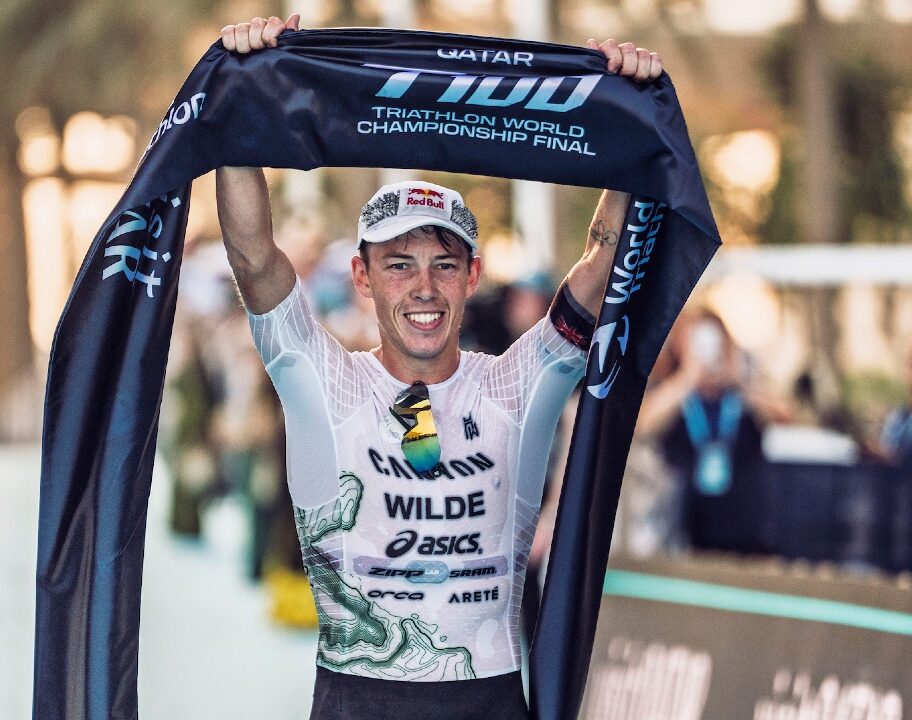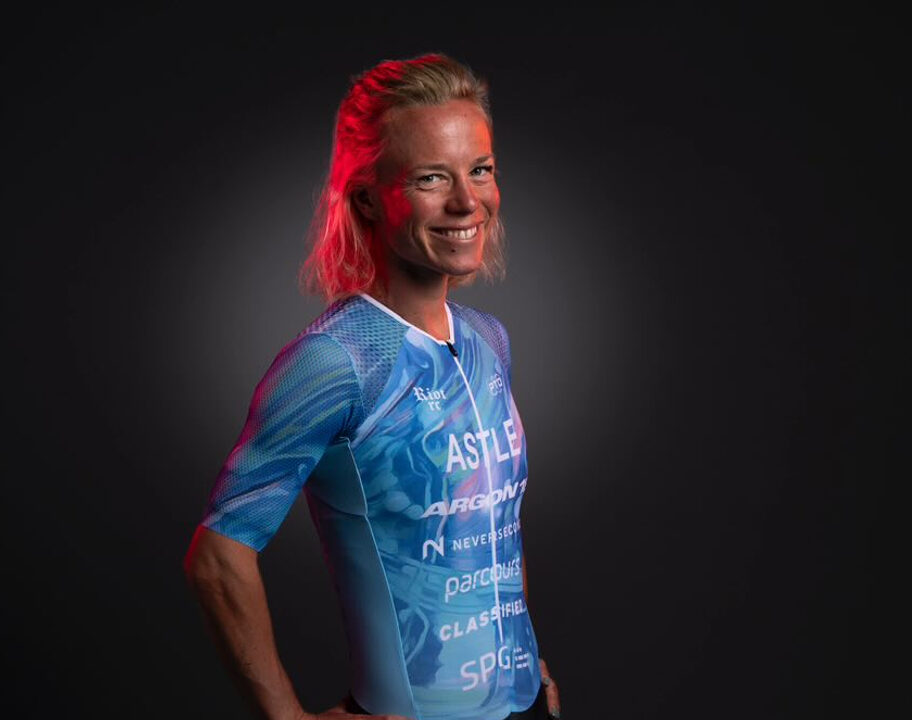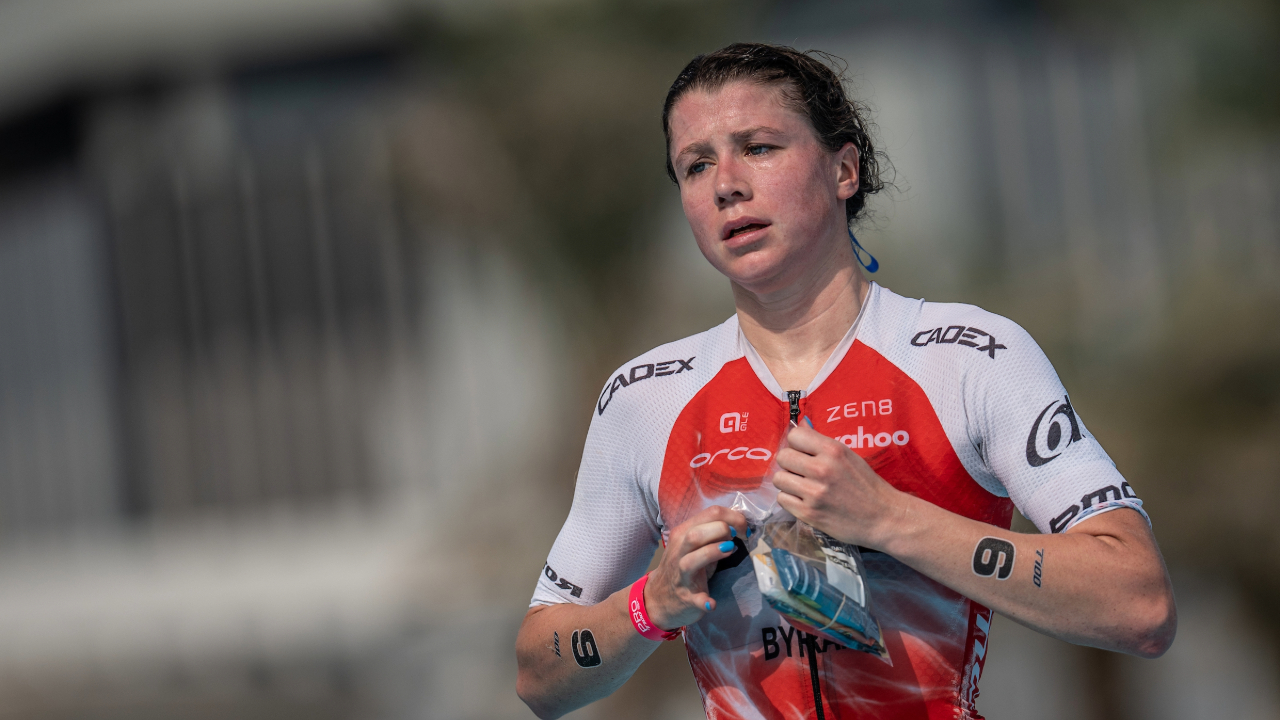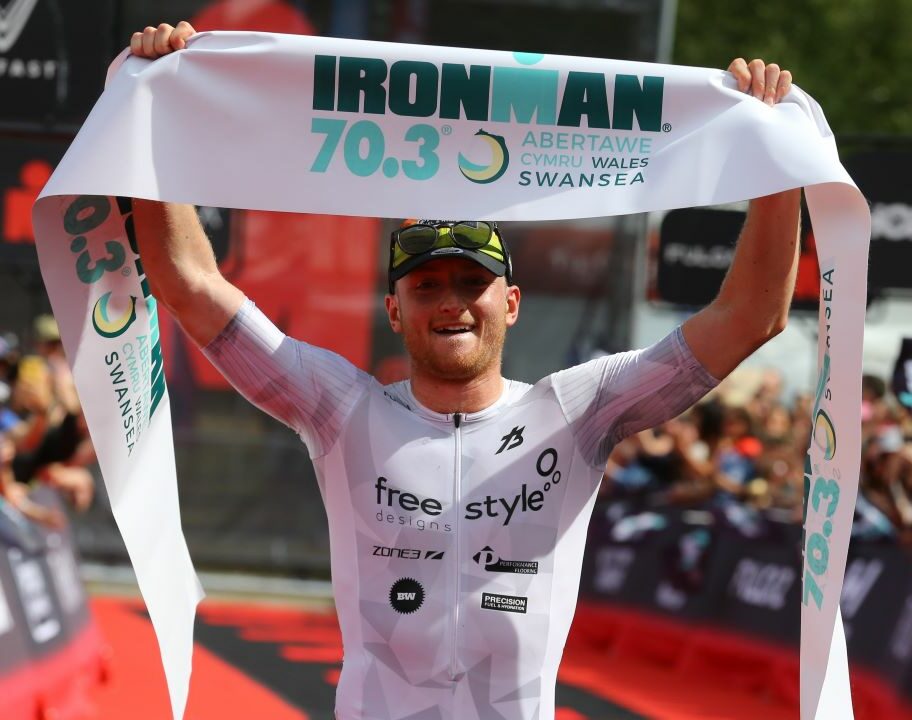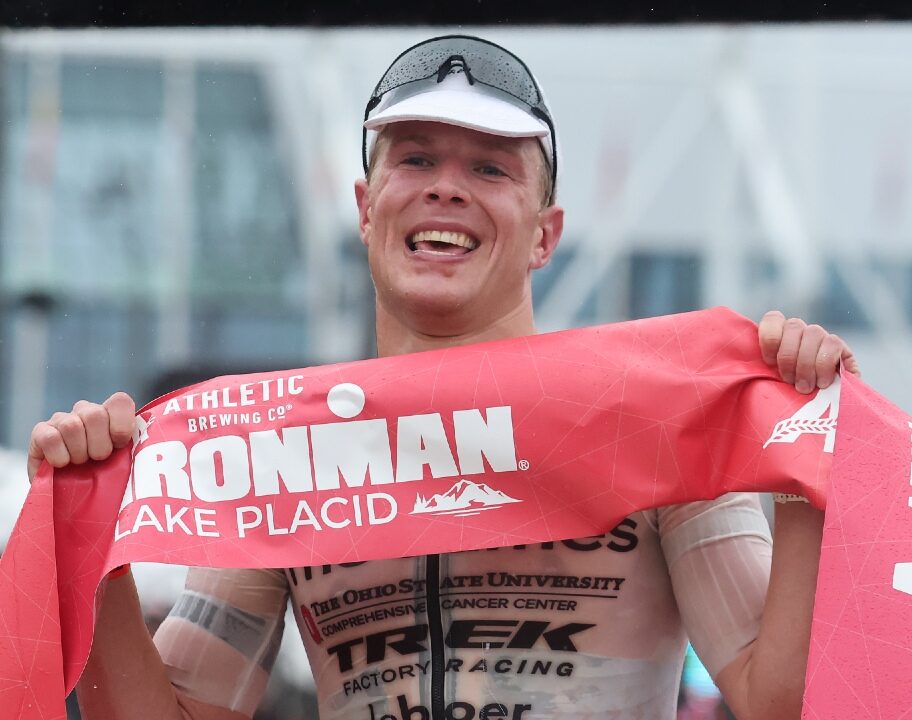In our third and final instalment from an incredibly informative and engaging interview with triathlon coach David Tilbury-Davis, we discuss why a lack of education regarding sponsors is creating a “race to the bottom” for many long course professionals.
Having shared the story of his own path in the sport and dissected the current landscape of long course triathlon in our two previous pieces, Tilbury-Davis offers a candid insight into the fallacies many professionals are buying into as the sport evolves.
Stating clearly that “we’re not tennis and we’re not golf”, the coach of PTO World #2 Ashleigh Gentle urges triathletes to reflect on the hard work necessary to make a living in the sport and shines a spotlight on the skills outside of swim, bike and run that they need to become acquainted with.
“A lot of athletes need to take a step back”
Pointing out the differences in short course and long course pathways for young athletes, Tilbury-Davis highlights how the selection processes and criteria of governing bodies in the Olympic stream helps guide athletes decisions.
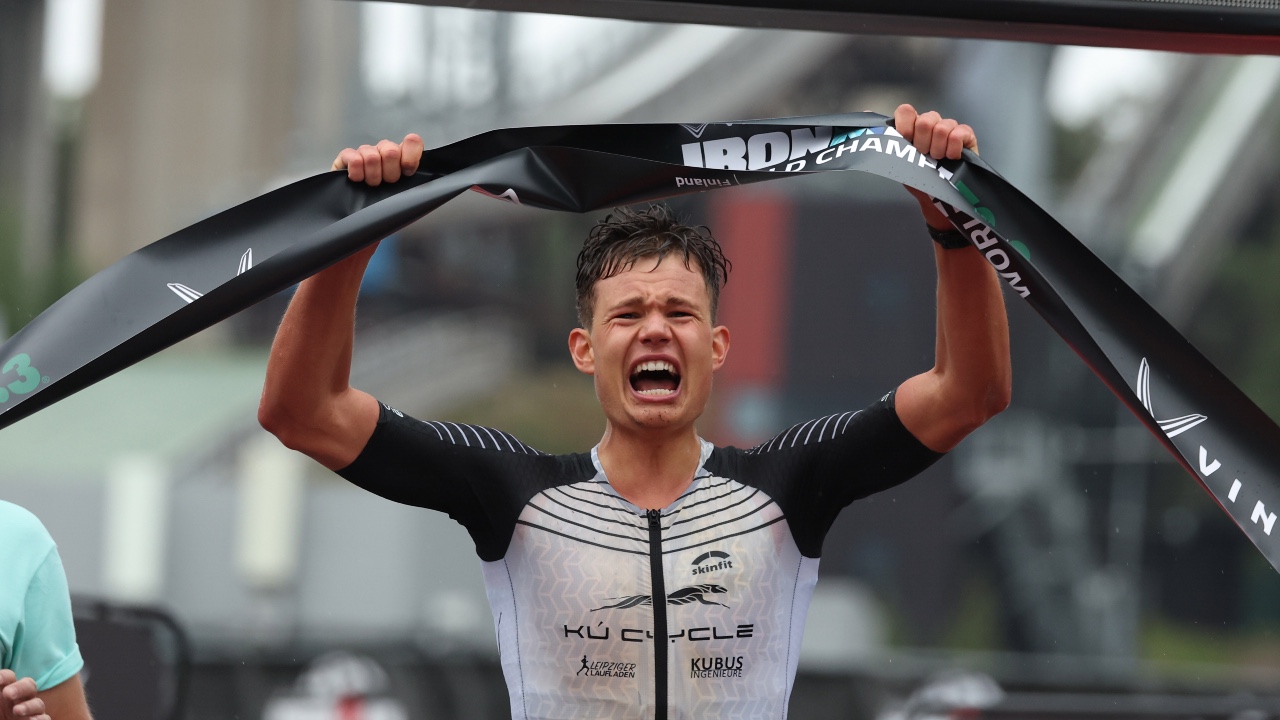
“I think from a pathway perspective, when we are talking about talented individuals, in short course a lot of National Governing Bodies have specific structures for selection and de-selection.
“If you’re a young triathlete and you have started out and you’re racing short course, you will fairly quickly know if you’ll be supported by your NGB or not and that can help you decide which direction to take with your career.
“In long course however, the PTO and the money numbers they talk around races has given people the expectation that they can come into long distance triathlon and make a living, which is just not true. The younger generation needs to reflect on the graft.”
Influencer vs Athlete
Whilst in no uncertain terms does Tilbury-Davis want young athletes going through the hardships of financial uncertainty for the sake of learning a lesson, he does call for some realism in what to expect when trying to make a living in the sport.
I think the biggest problem facing the sport as a whole is on the one hand, a lot of athletes need to take a step back, look at our sport and say ‘we’re not tennis, we’re not golf.
“On the flip side, with regards to sponsors, a lack of education for professional athletes, because there isn’t a central body to help them understand how to work with sponsors and leverage their brand, means that a lot of endemic sponsors are creating this race to the bottom effect.”
Tilbury-Davis said that when taking into account tax deductions, contracts offered to athletes are often “pretty insulting”, but that many people are accepting whatever they can get because of an inexperience in understanding their worth and properly negotiating deals.
“Athletes are accepting them [poor contracts] because nobody has given them the opportunity to understand how to leverage their brand and a lot of people are having to learn that organically.
“This is where I think a big problem lies for the younger generation, answering the question how do I build my brand without becoming an influencer and still focus on being a professional athlete.”








